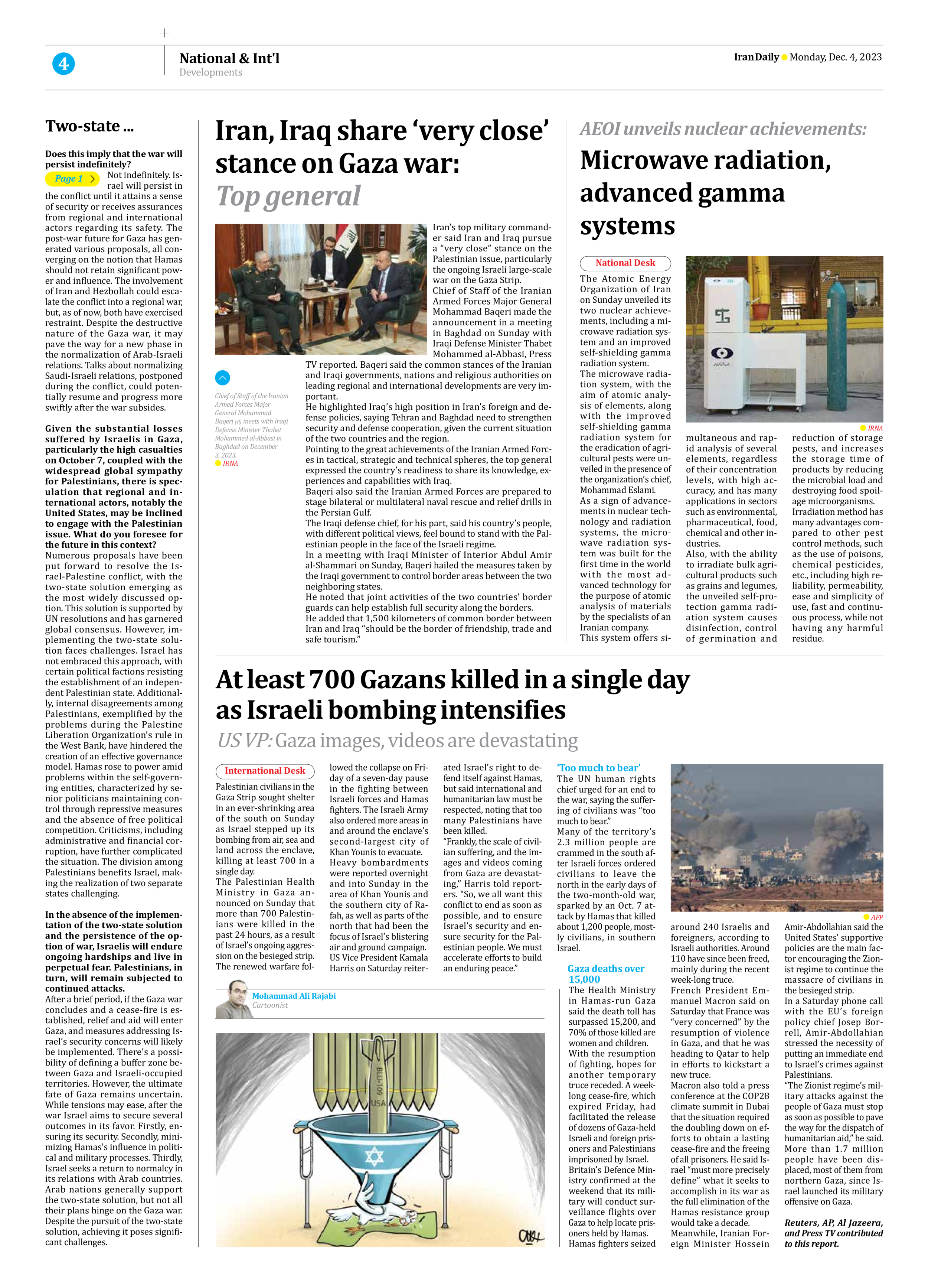
Two-state ...
Page 1
Does this imply that the war will persist indefinitely?
Not indefinitely. Israel will persist in the conflict until it attains a sense of security or receives assurances from regional and international actors regarding its safety. The post-war future for Gaza has generated various proposals, all converging on the notion that Hamas should not retain significant power and influence. The involvement of Iran and Hezbollah could escalate the conflict into a regional war, but, as of now, both have exercised restraint. Despite the destructive nature of the Gaza war, it may pave the way for a new phase in the normalization of Arab-Israeli relations. Talks about normalizing Saudi-Israeli relations, postponed during the conflict, could potentially resume and progress more swiftly after the war subsides.
Given the substantial losses suffered by Israelis in Gaza, particularly the high casualties on October 7, coupled with the widespread global sympathy for Palestinians, there is speculation that regional and international actors, notably the United States, may be inclined to engage with the Palestinian issue. What do you foresee for the future in this context?
Numerous proposals have been put forward to resolve the Israel-Palestine conflict, with the two-state solution emerging as the most widely discussed option. This solution is supported by UN resolutions and has garnered global consensus. However, implementing the two-state solution faces challenges. Israel has not embraced this approach, with certain political factions resisting the establishment of an independent Palestinian state. Additionally, internal disagreements among Palestinians, exemplified by the problems during the Palestine Liberation Organization’s rule in the West Bank, have hindered the creation of an effective governance model. Hamas rose to power amid problems within the self-governing entities, characterized by senior politicians maintaining control through repressive measures and the absence of free political competition. Criticisms, including administrative and financial corruption, have further complicated the situation. The division among Palestinians benefits Israel, making the realization of two separate states challenging.
In the absence of the implementation of the two-state solution and the persistence of the option of war, Israelis will endure ongoing hardships and live in perpetual fear. Palestinians, in turn, will remain subjected to continued attacks.
After a brief period, if the Gaza war concludes and a cease-fire is established, relief and aid will enter Gaza, and measures addressing Israel’s security concerns will likely be implemented. There’s a possibility of defining a buffer zone between Gaza and Israeli-occupied territories. However, the ultimate fate of Gaza remains uncertain. While tensions may ease, after the war Israel aims to secure several outcomes in its favor. Firstly, ensuring its security. Secondly, minimizing Hamas’s influence in political and military processes. Thirdly, Israel seeks a return to normalcy in its relations with Arab countries. Arab nations generally support the two-state solution, but not all their plans hinge on the Gaza war. Despite the pursuit of the two-state solution, achieving it poses significant challenges.







